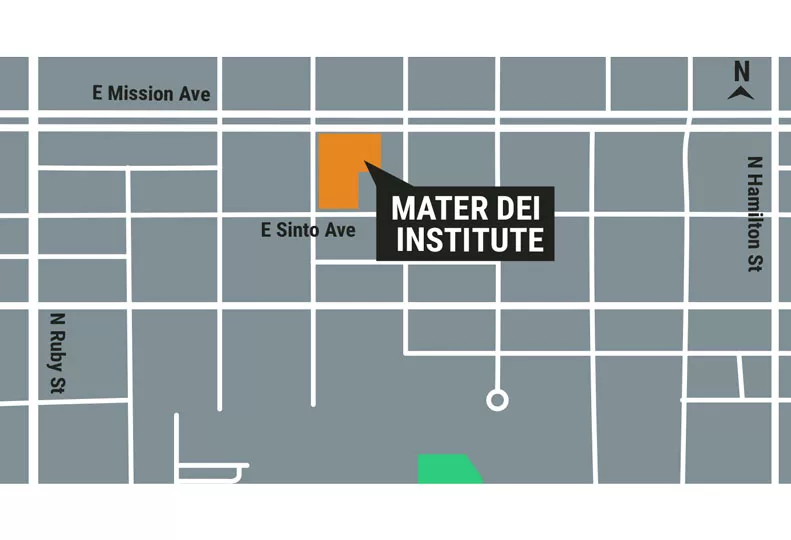Gonzaga ministry sells properties near campus
Organization reevaluates its offerings in Spokane

The Mater Dei Ministry Institute at Gonzaga University has sold its seven-property residential portfolio and is reevaluating how the nonprofit will serve students moving forward, says program director Shonna Bartlett.
The portfolio included seven buildings on contiguous lots in the 400 blocks of East Sinto and East Mission avenues that were sold to five different buyers for a total of $4.3 million, Spokane County Assessor’s Office records show.
Stephen Barbieri and Alicia Barbieri, of Goodale & Barbieri Co. represented the institute in the transaction.
The largest of the buildings, the 17,300-square-foot, 14-unit residential building at 405 E. Sinto, which also houses the institute’s offices, sold to the Spokane-based Bishop White Seminary for $1.4 million, according to Spokane County Assessor’s records.
Spokane Valley-based Rolling D Green LLC purchased three of the properties, two single-family homes and a converted duplex.
Post Falls-based Sinto 411 LLC purchased the multifamily property at 411 E. Sinto, and Seattle-based WWDD I LLC purchased a single-family house and duplex, located at 418 E. Mission.
The final property, another single-family home at 402 E. Mission, sold to John and Candy Correia, of Spokane.
All but one property is expected to continue to be marketed as student housing for Gonzaga students, says Bartlett.
The institute was founded by the Rev. Armand Nigro in 1981 to provide a seminary to train men who enter priesthood after they turn 30 years old and for whom priesthood would be considered a second career. It operated as such until the 1990s, when it ended seminary work and began offering housing and services to international priests and nuns on sabbatical, as well as services for Gonzaga students.
Changes to immigration laws made it more difficult for international students to acquire student visas, she contends, and Gonzaga itself shifted focus from an international focus to an academic program focus. That made the institute’s work providing services for those on sabbatical fit less in Gonzaga’s overall offerings, she says.
“We could no longer have residents on campus, and we were no longer able to have students audit without taking classes for credit,” she adds. “We simply didn’t have the scholarship funds or the financial resources to be able to do that.”
The funds from the real estate sales will be put into legacy funds, and the board of directors for the institute plans to meet this month to determine how to use the funds to continue the organization’s mission in Spokane, she says.
The institute’s office will remain at 405 E. Sinto until May 31, she adds.
Related Articles

_c.webp?t=1763626051)

_web.webp?t=1764835652)
